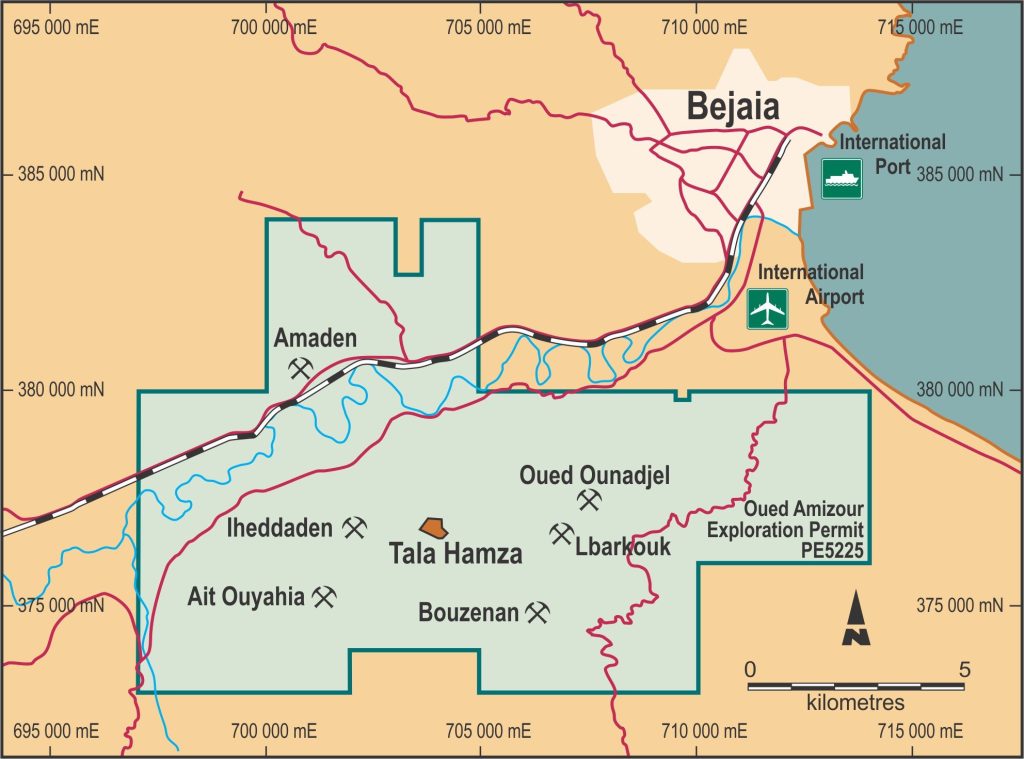Algeria’s political unrest is still not a thing of the past. Increased opposition to the current government’s political and economic strategies have increased and met by severe pressure. Even that the country’s main revenue base, oil and gas, is looking more stable and showing even renewed international interest, Algeria’s mining sector is however in less good shape. Reports are emerging that opposition groups in the Kabylie region are set to block a major new zinc and lead mine project in Bejaia in Kabylie. Arrest of opposition leaders have already been reported in the press, while signs of a potential re-emergence of the Hirak protest movement are growing. Since decades the Kabylie region of Algeria has a been in a conflict with the central government, which culminated in severe repression after the Hirak protests. Since the 2019 government reactions, most protests have been subdued, while main opposition and protest organizers have been jailed or prosecuted. The most well-known is the co-president of the World Amazigh Congress Karima Nait Said. The government has still a major restrictive regime in place in the region, blocking protests or public meetings. NGOs in the area are indicating an atmosphere of “terror”.

As the Hirak movement from the start has been calling for the dismantling of “Le Pouvoir”/”The Power” – Algeria’s entrenched political and economic elite, new mining projects supported by the latter are now getting the full attention of the protest movements. Already since May 2022, when major protests have been held against the mine, main focus has been on environmental protests. There is a growing fear in the region that the current and future mining operations will be propagating heavy metals in the air and also in the groundwater table. The latter could be the most devastating, as it could be hitting the Soummam Valley, known for its orange groves and its agro-food products sold across the country. The fears have been supported by reports and statements made by the climatologists and UN personnel.
Until there are no signs that the central government in Algiers is even considering the population’s fears and protests. Algerian opposition party Rally for Culture and Democracy however is now putting it on the agenda. Still, the government is pushing all through. In May, President Abdelmajid Tebboune, had pushed for its acceleration. In July, an executive decree on the downgrading of agricultural land to set up a logistical base in Tala Hamza was released.
The zinc and lead mine project is owned by a joint venture company Western Mediterranean Zinc (WMZ), a partnership between the Algerian ENOF and the Australian Terramin. Opposition of the latter mining operations are stating also that WMZ’s plan violates Algeria’s 2014 legislation which states that mines in protected areas shouldn’t be exploited. But the Soummam Valley is a wetland protected under the international Ramsar convention, ratified by Algeria in 1984. At present, no real actions have been taken, as the project is looked upon by Algiers as a major part of its strategy to become a major actor in the mining industry. It is part of a wider plan to exploit the country’s rich mineral resources and rely on them to fill the state coffers.
According to the latest statements on the website of Terramin Australia there are no issues at present. On October 26 2023 Terramin stated that it is pleased to advise that the Algerian Government has issued an “Executive Decree of Public Utility” (Decree) in respect of the Tala Hamza Zinc Project (Tala Hamza). The Decree was signed by the Prime Minister of Algeria, Aimene Benabderrahmane. The issue of the Decree is an important stepping stone for Tala Hamza as it triggers the process for the acquisition of the land by the Algerian Government, which covers the footprint of the Tala Hamza Mining Permit. This land of an area of approximately 234 hectares will then be made available to the project to undertake its operations.
The Tala Hamza project is located on the Mediterranean coast of Algeria, approximately 15 kilometers from the port city of Bejaia. Bejaia has a deep-water port facility and an international airport. The project is close to major rail, road and energy infrastructure. Terramin also reiterated that Tala Hamza is a world class ore body and is now proceeding towards development, it will become one of the largest developing zinc and lead deposits in the world.
